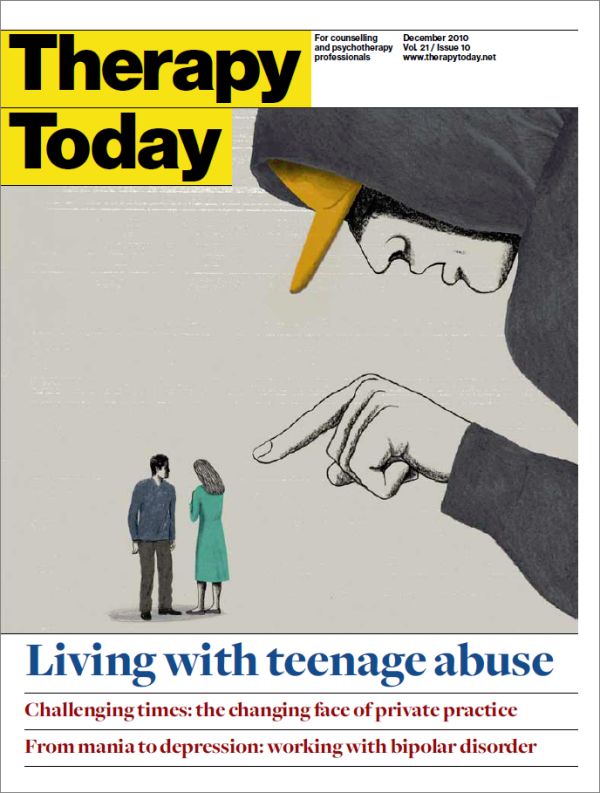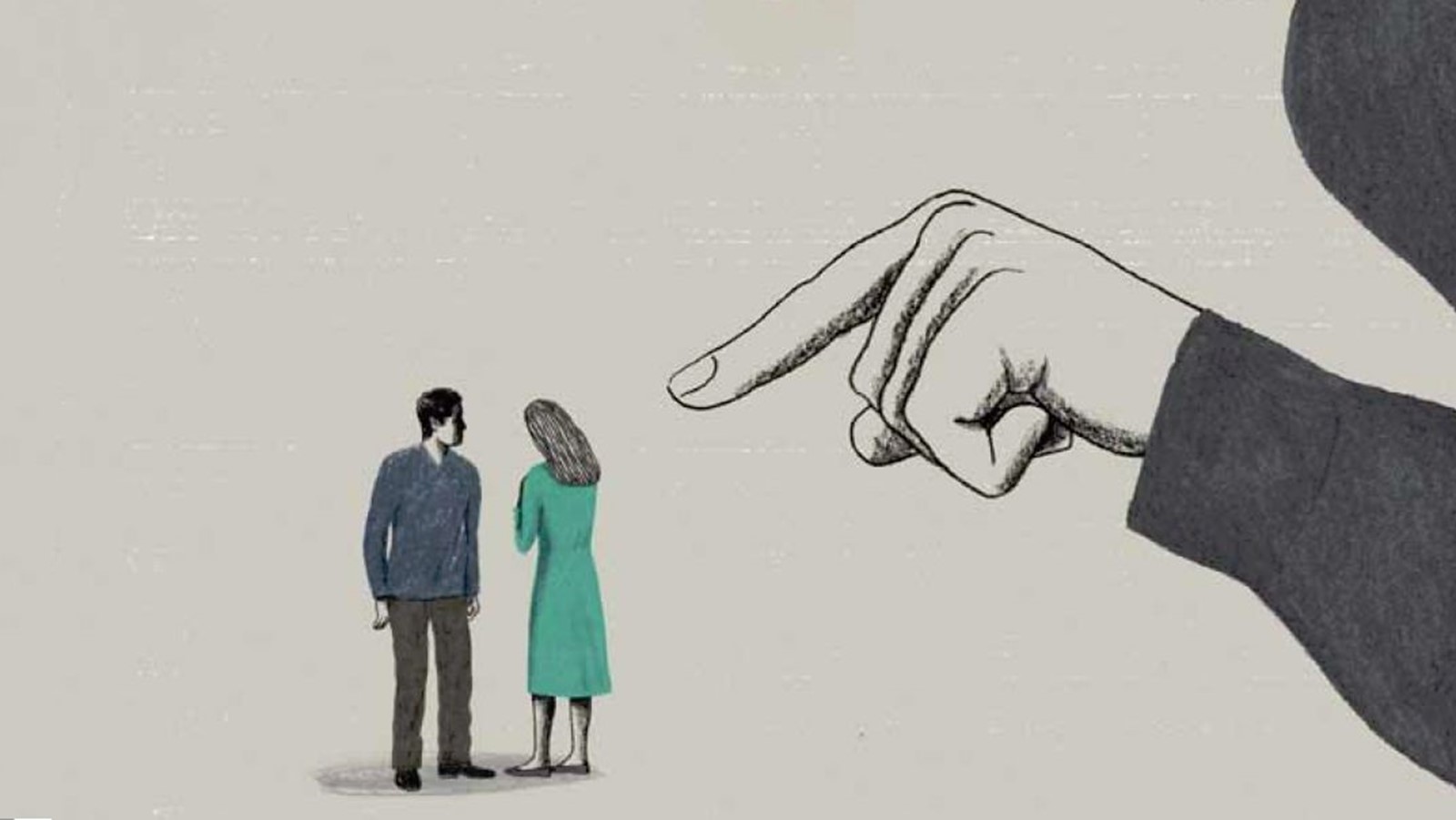In this issue
Features
Living with teenage violence
Teenagers’ aggression towards their parents is increasing. What are the causes of this and how can families be helped?
The changing face of private practice
In these challenging times, is working as a private practitioner still an attractive or even a viable option?
What goes up must come down
A significant number of clients will present with bipolar affective disorder. How can practitioners recognise and best work with this?
Power and status in groups
A mix of mental health clinicians and service users explore how abuses of power can inflict damage on people’s wellbeing.
Regulars
In practice
Kevin Chandler: Ritual in therapy
In the client's chair
Orla Murray: Being seen
In training
Alex Erskine: Them and us
Questionnaire
Michael Soth
Day in the life
Heather Dale
Dilemmas
Should you breach confidence?

All articles from this issue are not yet available online. Members and subscribers can download the pdf from the Therapy Today archive.
Editorial
My mother often goes on at me and my siblings about how our generation are asking for trouble in the way we have brought up our children – prioritising their every need, making them too much the centre of our lives and not setting firm enough boundaries. I wonder whether the thousands of parents who have been phoning Parentline Plus in the last couple of years to ask for help because their teenagers have hit them, feel that they themselves are to blame for their kids’ behaviour.
I remember reading an article in The Guardian last year – ‘The Day My Daughter Hit Me’ – which brought home this shocking reality in a mother’s story describing how her 15-year-old daughter turned on her during an argument about homework and hit her in the face, smashing her glasses in the process.
Unfortunately, as our article reveals, this new trend in teenagers’ violence towards their parents is attracting labels and diagnoses left, right and centre for the children in question, for example: ‘oppositional defiant disorder’ or simply ‘conduct disorder’. I am much more convinced by Peter Wilson’s view that we are more likely to be dealing with something unbounded in the relationship between parent and child: ‘Calling this a disorder simply distances everyone from the human tangle that these parents and children have got into...’
I was at the New Savoy Partnership conference last week where Paul Burstow was announcing that next year IAPT is to be extended to children and young people, as well as older people and those with serious and enduring mental health problems. Let’s hope that this initiative will take heed of the existing wealth of knowledge and experience of working with young people in schools and other settings and steer away from the medicalisation of distress.
Sarah Browne
Editor
